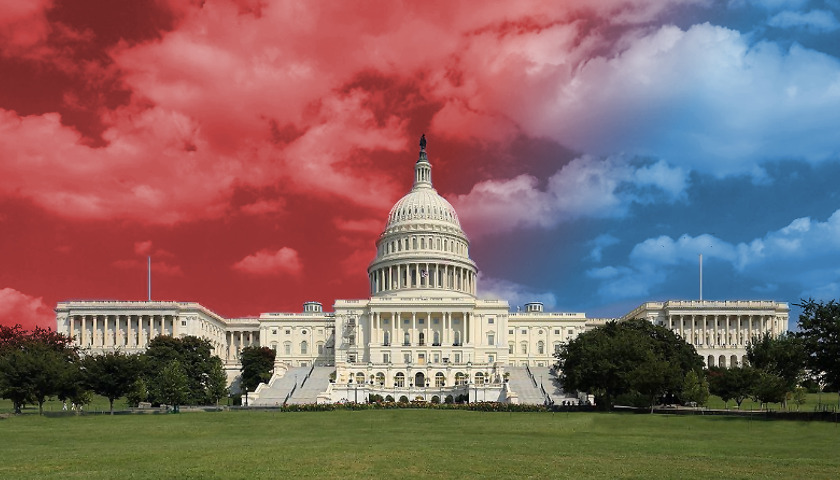by Robert Romano
Don’t look now, but the 2018 race for the House of Representatives could be one of the closest in U.S. electoral history.
Currently, the House is broken down 235 to 193 with 7 empty seats. As of this writing, the Real Clear Politics average of polls in the House predicts Democrats will pick up about 25 seats on Nov. 6.
If that happens, Democrats would have 218 seats, and Republicans 217 seats.
That would be the closest majority in U.S. history and since 1916, when Republicans won 216 seats to Democrats’ 214.
Any less than 25 seats picked up by Democrats, and Republicans will retain the majority.
Midterms are traditionally not favorable to the President’s party, particularly in the House. 9 times out of 10, seats are lost, and when they do, losses have averaged about 35 over the past century.
On the Senate side, things look a bit more solid for Republicans, with the Real Clear Politics average of polls predicting Republicans pick up two seats, bringing their majority potentially up to 53 seats if not greater.
Usually, incumbent parties give up on average 6 seats, 71 percent of the time. Any pick up of seats in the Senate and President Donald Trump becomes an exception to the usual rule. It means he has coattails.
Forget the blue wave. What we’re seeing here is the peaceful, political equivalent of trench warfare. No districts, no states can be spared.
Interestingly, despite their importance, turnout is usually much lower in midterm Congressional elections than in presidential elections. According to Electproject.org of the University of Florida, midterm turnout has not exceeded presidential turnout since 1838. In the early days of the republic, there was actually more voting for members of Congress than for the president. The first time it flipped was 1828 when Andrew Jackson was elected to president.
So, if you had any doubt about whether your vote counts in this election, it sure does.
It will determine whether the southern border wall is ever built.
Whether the tax cuts get made permanent or if there’s another round to boost the economy.
Whether bills like the MERIT Act, expediting the firing of bad federal employees, passes.
Whether Republicans or Democrats will get to write the President’s infrastructure bill in the House.
Whether the House under Democratic leadership will pursue Trump as a suspect in the 2016 Russian election interference affair.
In short, the outcome is really, really important.
And believe it or not, voting in this midterm election could prove to be critical to the outcome. It doesn’t get any closer than this.
– – –
Robert Romano is the Vice President of Public Policy at Americans for Limited Government.




